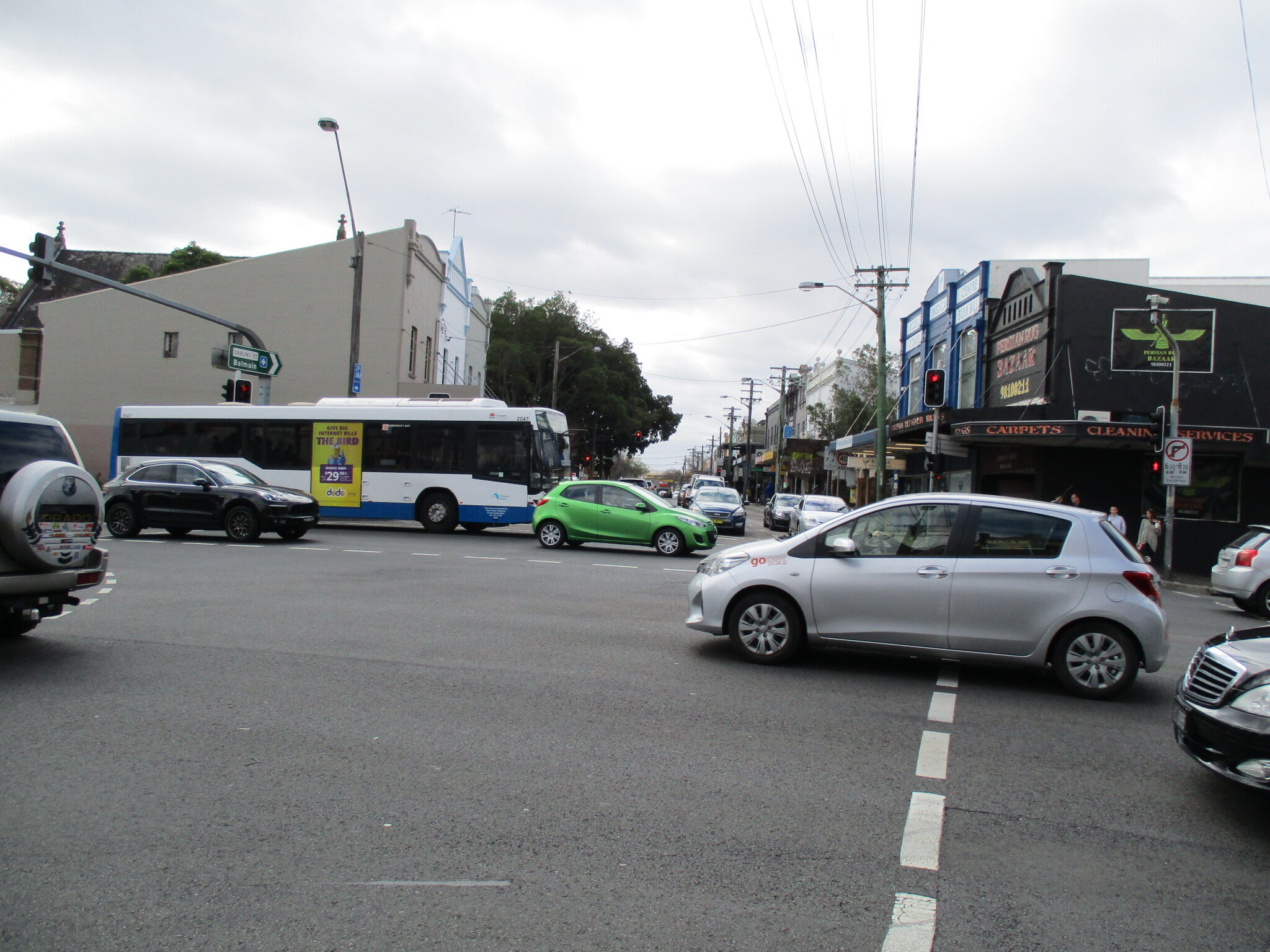- Car Maintenance
- Blog
Cutting Costs on Corporate Car Operations in Sydney

For businesses in Sydney seeking cost-effective transportation solutions, Roundabout Australia presents a comprehensive guide to leveraging cars in a financially savvy manner. This guide delves into the advantages and disadvantages of leasing, subscriptions, and purchasing options, aiming to assist Sydney-based businesses in identifying the best plan for their needs.
Introduction
Sydney's Vehicle Movement and Cost Issues

Sydney, one of Australia’s major cities, has cemented its position as a hub for business and logistics. Vehicle movement in this city is essential for commercial activities but comes with significant costs. Fuel, parking fees, tolls, insurance, and maintenance can impact corporate finances greatly. Especially in urban areas, these costs are exacerbated by traffic congestion and limited parking spaces. Against this backdrop, effectively managing and minimising vehicle operational costs is crucial for economical business operations in Sydney.
The Importance of Vehicle Utilisation for Savings
Reducing vehicle operational costs is vital for Sydney-based companies to enable economical operations. Cost reduction not only maximises profit but also enhances the stability of management. Savings in vehicle utilisation are not just about reducing initial investment but also about reducing long-term operational costs. This includes selecting fuel-efficient vehicles, practising eco-driving, optimising maintenance, and utilising car-sharing or rental services. Effective vehicle utilisation can reduce transportation costs and achieve more sustainable operations.
The Importance of Vehicle Selection
Choosing Cost-Effective Vehicle Models
When Sydney corporations choose vehicles, cost efficiency is one of the most critical factors. To choose cost-effective models, it’s essential to consider not just the initial purchase price but the total cost of ownership, including maintenance, insurance, fuel, and depreciation. Economical vehicle selection often involves considering smaller or mid-sized models known for their fuel efficiency and lower insurance costs. Additionally, selecting models known for reliability can reduce repair costs and keep operational costs low.
Features of Fuel-Efficient and Low-Maintenance Vehicles
Choosing vehicles with high fuel efficiency and low maintenance costs significantly contributes to long-term cost reduction. Fuel-efficient vehicles are particularly economical for urban operations. When selecting fuel-efficient vehicles, engine size, vehicle weight, and aerodynamics should be considered.
Generally, vehicles with smaller engines and lighter bodies are more fuel-efficient. Hybrid or electric vehicles are especially effective in reducing fuel costs. Vehicles with low maintenance are durable and require fewer repairs or part replacements. Popular models or brands can offer easier part availability and lower repair costs, substantially reducing operational costs for Sydney corporations.
Eco-Driving and Fuel Reduction
Fuel-Saving Driving Techniques
Adopting fuel-saving driving techniques is very effective in reducing vehicle operational costs for Sydney companies. Smooth acceleration and deceleration are crucial as rapid starts and stops increase fuel consumption. Maintaining a constant speed and choosing the right gear can improve fuel efficiency. Minimising the use of air conditioning and heaters also impacts fuel use. Practising these eco-driving techniques can significantly reduce fuel costs over time.
Route Planning and Traffic Utilisation

Efficient route planning and understanding traffic conditions can also contribute to fuel savings. In a major city like Sydney, frequent traffic congestion can lead to unnecessary fuel waste. Companies can use GPS navigation systems and traffic information apps to choose congestion-free routes.
Planning deliveries or sales activities to efficiently cover multiple destinations can minimise travel distances. Planning trips during off-peak times can reduce congestion-related time loss and fuel consumption, effectively lowering vehicle operational costs in Sydney.
Utilising Rentals and Car Sharing
Tips for Cost-Effective Car Rental
Car rental is an ideal solution for temporary vehicle needs for specific periods or projects. To keep costs down, comparing rental rates in advance is crucial. Online comparison sites can provide an overview of various rental company rates and conditions. Long-term rentals often come with discounts, making them an economical choice based on the required duration. Carefully considering the necessity of additional insurance and avoiding unnecessary options can prevent extra expenses. Choosing fuel-efficient vehicles when needed can also reduce overall costs.
Effective Use of Car Sharing Services
Car sharing offers Sydney companies a flexible vehicle usage option. For the most effective use of this service, selecting a service that matches business needs is essential. Many car-sharing services cater to various durations and purposes.
Companies should choose the optimal service provider based on usage frequency, required vehicle types, and location. Additionally, considering the convenience of the reservation system and vehicle accessibility is important. When using car-sharing, planning the usage duration and days in advance to avoid extra costs is crucial. Understanding the service provider’s contract details and avoiding misunderstandings about extra charges or terms is also vital.
Roundabout offers not only vehicle purchasing options but also subscription services. Compare Roundabout’s options with leases and car-sharing to find the most cost-effective plan. Roundabout can offer highly competitive plans by reducing intermediary margins throughout the import and export process. Access Roundabout online to check out the options.
Expense Management and Vehicle Insurance
Efficient Management of Vehicle-Related Expenses
Efficient management of vehicle-related expenses is crucial for Sydney companies to reduce costs and ensure financial transparency. All vehicle expenses, including fuel, maintenance, insurance, taxes, and depreciation, need to be tracked in detail. Using dedicated accounting software or spreadsheets to maintain accurate and timely data is essential for effective expense management.
To reduce expenses, selecting fuel-efficient vehicles, maintaining a regular maintenance schedule, and establishing policies to cut unnecessary spending are effective strategies. By implementing these practices, companies can understand and control costs associated with vehicle operations.
Choosing Cost-Efficient Vehicle Insurance
While vehicle insurance is necessary to cover risks and prevent unexpected expenses, insurance premiums can also be a significant expense. To select cost-efficient insurance, comparing quotes from different insurance companies is crucial.
Using online comparison tools or insurance brokers can help find the best coverage and price. Tailoring coverage to meet company needs and avoiding unnecessary options are key to cost efficiency. For example, comprehensive coverage may not be necessary for older vehicles. Equipping vehicles with safety features, maintaining a good driving record, and regularly reviewing and adjusting insurance policies to match company circumstances can optimize insurance choices.
Conclusion
Summary of Methods to Use Vehicles Cost-Effectively
This article has explored various strategies for Sydney-based companies to effectively reduce vehicle operational costs. These strategies include selecting cost-efficient vehicle models, practising fuel-saving driving techniques, efficient route planning, utilising car rental and car-sharing services, efficient management of vehicle-related expenses, and choosing cost-efficient vehicle insurance.
By combining these strategies, Sydney companies can significantly reduce costs related to vehicle operations and achieve more efficient management. The key is to adapt these strategies to the specific needs of the company and to monitor and adjust them continually.
Future Outlook for Corporate Vehicle Use in Sydney
The future of corporate vehicle use in Sydney is expected to continue evolving. With increasing environmental awareness and technological advancements, a shift towards electric and hybrid vehicles is likely to accelerate. These vehicles can reduce fuel costs and lessen environmental impact.
Additionally, the advancement of autonomous driving technology could further enhance transportation efficiency and safety. Digitalization and data analytics advancements will enable more precise expense management and operational optimization. By paying attention to these trends and incorporating advanced technologies, Sydney companies can build a sustainable and efficient future for corporate vehicle use.
Popular

- Japanese Used Car
- Blog
The Pitfalls of Purchasing Imported Japanese Used Cars
27 February 2024

- Blog
Your Complete Guide to Buying a Used Car in Australia: From Pre-Purchase Inspection to Post-Purchase Maintenance
01 October 2024

- Car Functions
- Blog
Smart Key Solutions: Battery Replacement and Troubleshooting
23 March 2024

